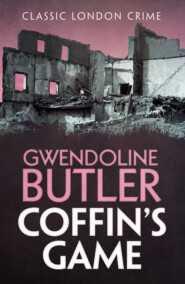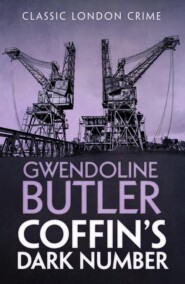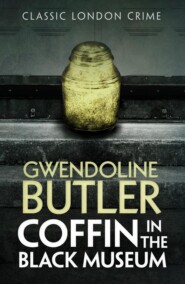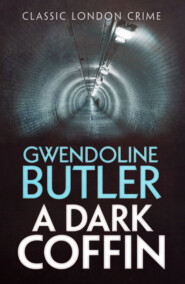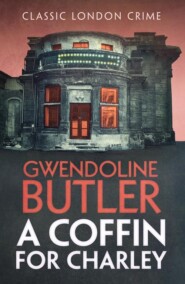По всем вопросам обращайтесь на: info@litportal.ru
(©) 2003-2024.
✖
Coffin Underground
Автор
Год написания книги
2018
Настройки чтения
Размер шрифта
Высота строк
Поля
Or gossip about old friends.
‘So Dander slipped off the side.’
‘Yes.’ Coffin looked serious. Commander Dander had been his patron and friend. ‘And I didn’t even know he was ill till he went. Very sudden. Heart. Still, it wasn’t a bad way to go.’
‘What he would have wanted.’
‘Don’t know about that.’ Coffin remembered his Dander. ‘If he’d had what he wanted, I think he would have lived for ever.’
‘Hard on his wife, though.’
‘Which? Dying suddenly or living for ever?’
‘With Charley Dander I should think living for ever would be the worst punishment.’
‘Did you know he had three wives?’ said Coffin. ‘We none of us knew till they all turned up at the funeral. All divorced and all hating the sight of each other.’
‘I bet they were lookers. Dander knew how to pick them.’
And leave them, thought Coffin, a man loyal to his mates but not to his women.
‘I hear you’re living in Church Row?’
Coffin nodded.
‘Nice houses, but a bit near the churchyard for my taste.’ So the sergeant, who knew everything, had heard the tales about the powers of No. 22.
‘I’m the other end.’
‘Just as well.’
‘So I’ve heard.’
The sergeant laughed.
Coffin tried once more: ‘What’s this tale about three students disappearing from a house in the Row, leaving a lot of blood behind and never being seen again?’
The sergeant sighed. ‘That old tale going round again? They didn’t disappear. Or not for long. There was a bit of blood about, though. What happened was, the three of them had a fight, got a lot of blood on the furnishings and lost their nerve about the damage they’d done. I think they did drop out of sight for a few days, but not more. The College soon got on to them.’
‘I’m beginning to remember some of the details myself now. It’s coming back. There was something later about one of the students, though, wasn’t there?’
Bernard Jones picked up his sandwich, inspecting it. ‘They put less and less ham in these every day, I say. But they say they don’t. More if anything. One day I’ll measure.’
‘Yes, that’s the scientific approach.’
The sergeant ate the sandwich in three great mouthfuls, talking between bites. ‘Something about one of the students, Malcolm Kincaid. He was a chemistry student. A year after he graduated he was found dead in Greenwich Park. His body was lying tucked away in some bushes. Killed himself. Left a note saying he was going to do it. He did it with cyanide, he’d managed to lift a quantity from the lab where he was working. It’s a quick death. The medical evidence was that he died almost instantaneously.’
‘So what?’ It was obvious there was something.
‘Nothing to show how he’d taken it, no container, no poison, although he’d stolen a good five grams. In the form of potassium cyanide which would have gone down better if dissolved in liquid. Caused a lot of worry, that did.’
‘But he left a note saying he was going to kill himself?’
‘Oh yes, it was there with him. And he had the motive. That came out: girl trouble and money worries. He was a bit of a depressive too. Yes, he meant to do it.’
‘So what was the worry?’
‘Looked as though someone else had been there. He was all neat and tidied up. When you take cyanide you don’t die that way.’
Coffin thought about it. ‘Interesting. What happened then?’
Bernard shrugged. ‘A verdict of suicide was reluctantly arrived at.’
‘When was this?’
Bernard worked it out. ‘About three years ago. Just over.’
‘One of life’s little mysteries,’ said Coffin.
Then the talk turned to other things, and he buried the story of Malcolm Kincaid, student, at the back of his mind.
One of those puzzles you think about in the middle of the night and can never decide on an answer. It could go in the drawer with Mr Qualtrough of Men-love Gardens East, and where was the axe that killed the Bordens?
He thought a bit about William Egan the grudge-bearer, and kept on his guard, but there was no sign of him. Nor any movement in the undergrowth of the local criminal jungle that might show his passage. Once or twice he thought he saw Mrs Brocklebank, that conveyor of news around the town, giving him a thoughtful look as if she knew something he did not, but that probably meant nothing more than that she was news-gathering.
He liked the new flat in Church Row, where over the roofs and through the trees he could see the top of the clipper, the Cutty Sark. At the moment the trees blocked his view, but in winter when the leaves had thinned he would be able to see the intricate rigging of the ship. He liked that thought. Living here was bringing him back to an area he had known as a boy and where he had worked at the beginning of his career. It was a part of London for which he retained an affection. For ten years he had been living away from the suburb, he had moved off deliberately, there were mixed memories, some good and just a few downright painful, but now he was glad to be back. It felt like home. It was amazing how life stitched itself together again into a piece if you gave it a chance.
Every time he walked down Church Row on the way to work, he took a look at No. 22. It had been empty for some months since the last tenants had left. Then one day he saw the windows had been washed and plants put in the window-boxes. It was spring, they were daffodils. Yes, said Mrs B., the owner and his family are coming back. Edward Pitt had retired from the FO; he had been working at the United Nations. John Coffin was looking forward to meeting him again, a friendly, vital man, as he recalled. The whole family was interesting. People said they were artistic and amusing. They had a few critics too, but that was understandable. There had been ‘family’ problems, whatever that meant, but even the easiest of families did not always see eye to eye. Interesting to watch how they got on in No. 22, where by all accounts they had never lived much. He might find out what they knew of the story of the three students. He looked down at the front steps. No real sign of blood.
Blood.
He had got his life settled: he had got someone reliable to clean his place in Mrs Brocklebank, who, he now realized, ‘did’ for most of the road, and who had really acquired him rather than the other way round; and he had arranged for two newspapers to be delivered daily, and had settled on a milkman who also sold bread and eggs. You could live on bread, milk and eggs if you had to. Everything was in train. The only drawback was that Mrs Brocklebank would not iron his shirts. Or anything of his.
‘I do Brock’s and that’s my lot.’ It was the first time he had realized there was a living Mr Brocklebank; he had supposed her to be a widow. She had the vigorous healthy look of a woman who lived for herself alone.
He tried drip-drying his shirts himself, but he liked the cuffs ironed. He tried ironing them himself. It was easy if you didn’t scorch them. He did scorch them. Quite often. Too often.
He sought help.
Mrs Brocklebank surveyed the burnt offerings without sympathy. ‘It’s quite simple if you keep the heat on the iron adjusted.’
‘I do keep it adjusted. But it leaps up.’
‘I’m not a laundress myself.’ She considered; Coffin waited hopefully. ‘I suppose you could try Sarah Fleming. Sal has a good hand with the iron, she ought to have with the practice she gets looking after that brood of hers, and she’s usually glad to earn an extra pound or two.’
He left the arrangements to her, with the result that she took away his washing on a Monday and it reappeared, neatly packaged and with the bill, on his doormat every Wednesday. Mrs Brocklebank acted as banker.
Occasionally messages came back through Mrs B.







